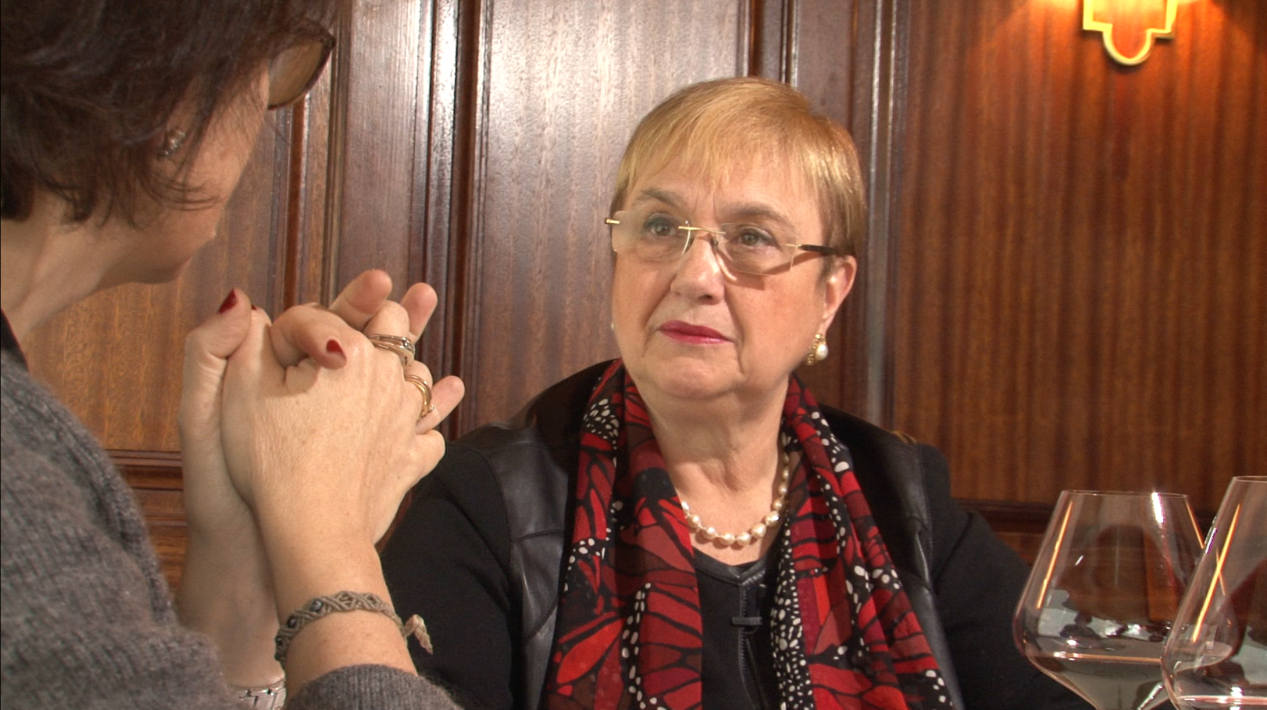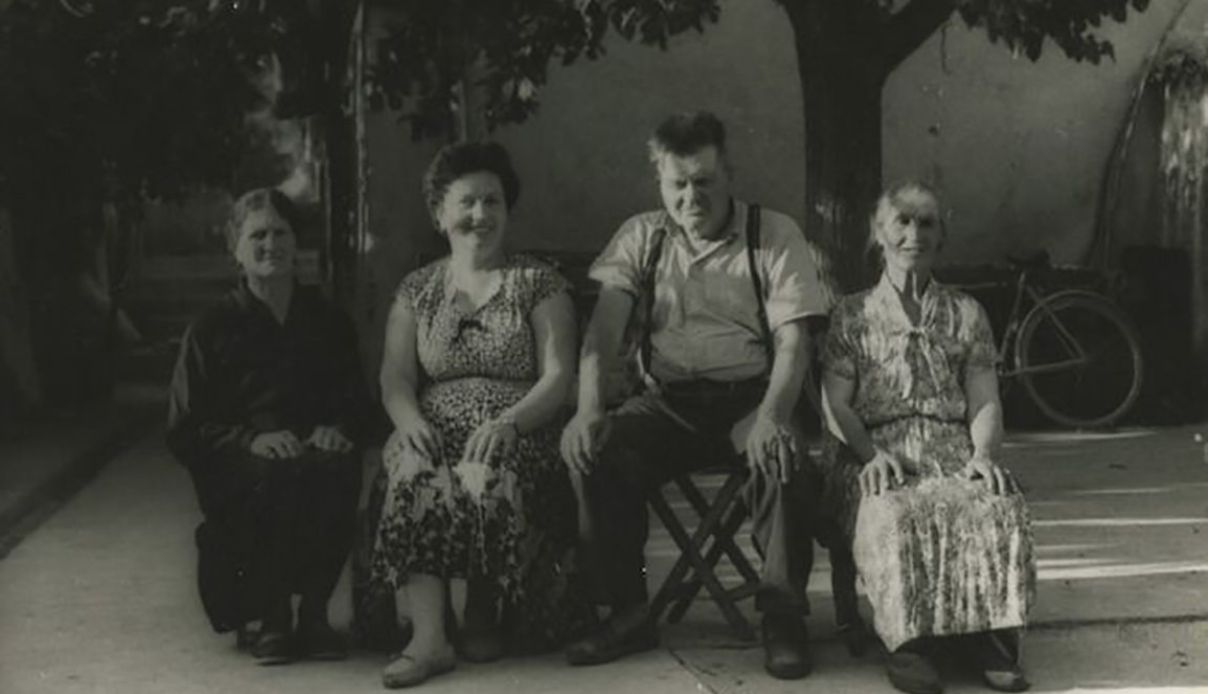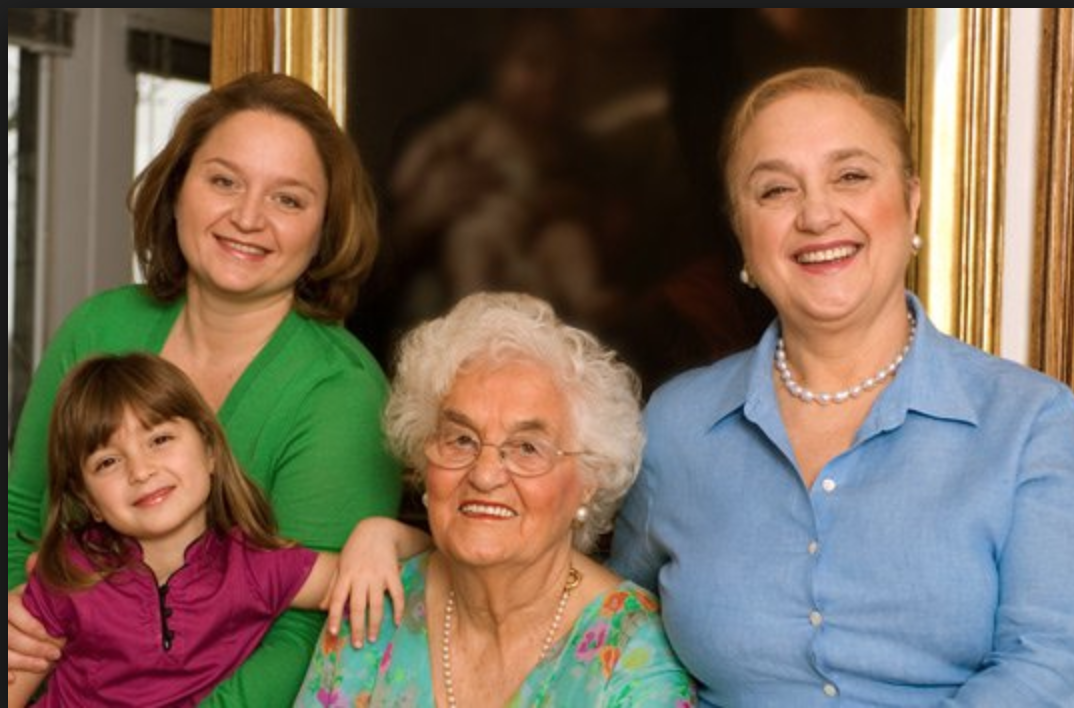Lidia Matticchio Bastianich: Nostalgia and Success
The name Lidia Bastianich is synonymous with exquisite Italian cuisine. Many people know the talented chef from her fine Italian restaurants and her various television programs throughout the years. However, Ms. Bastianich’s professional accomplishments are only one component of her intriguing and significant personal history. As a child, Lidia grew up between three different worlds–each one having a significant impact on her and her future. i-Italy had the pleasure of sitting down with the world-renowned chef in order to better understand her roots and to help share her story.
Beginnings in Istria
It was February 1947; World War II had ended, and the Paris Peace Treaties were about to be signed. Until that point, the Istrian peninsula was primarily under Italy’s control following World War I. Despite having Italian governance, Italians living in Istria had a very difficult existence; many of them faced violence or death during the Foibe massacres occurring near the end of World War II. The Paris Peace Treaties, however, were a final nail in the coffin for many of those individuals as the treaties granted control of the Istria to Yugoslavia. Istrian-Italians knew they either needed to adapt to a new way of life or to emigrate from the peninsula. Many chose the latter option, so many, in fact, that the time period was known as the “Istrian Exodus.”
That same month, February 1947, Lidia Matticchio (later Bastianich) was born in the middle of the political unrest. Her family resided in Pola, and she would live there for the first nine years of her life along with her parents and her older brother–three years her superior. Lidia recalled that life in Pola during that time meant change for many of its residents. People were changing their names, changing the language they spoke, and even changing religion. She shared with an anecdote about her grandmother: “My grandmother would discreetly take me to church, and she would discreetly speak to me in Italian. All of these things, you really felt them as a young girl. It was difficult to exist in this uncertainty.”
Moving Across the Border
When Lidia was approximately ten years old, her parents decided that they could no longer raise their two children in that environment. During that time, it was not possible to simply leave Istria as a refugee; those looking to escape had to truly run away. Fortunately, the Matticchio family had relatives in Trieste, Italy. Lidia’s parents decided that she, her brother, and her mother would go to Italy to visit their family. Her father, however, had to stay behind in Istria. Lidia recalls, “They didn’t let the whole family go. They always held one as a hostage.” This system was enacted to ensure that those who went abroad would always return for the family member left behind. However, two weeks later, Lidia’s father fled Istria and arrived safely in Trieste.
The events of this tumultuous time stuck with young Lidia. She remembers her aunt who lived in Italy and who brought her son into the woods to avoid the Foibe massacres, but he never returned. Work in Italy was scarce and did not provide a secure life; Lidia’s father worked as a chauffeur for a the Rossetti family, and her mother cleaned houses. Again, Lidia’s parents felt compelled to make a change.
Crossing the Atlantic
Anyone who was interested in emigrating from Italy needed to enter into a refugee camp. Lidia’s parents had been contemplating entering the camp in Trieste, San Saba, for a few months before they finally decided to sign up. Lidia shared with us a bit of her experience there: “I remember that as soon as we entered, they put us in quarantine. Quaratine meant that they stripped you of your clothes; they took everything from you, and they looked to see if you were healthy. Then they put us in a rather dark room, and they put my father in another because they separated the men. Even now I remember it because there was this small window, and I was looking between the bars to see if I could see my father coming. After 40 hours, they reunited us, and we were all much more relaxed.” Lidia and her family stayed in this camp for two years. She recalls waiting in line for food every day with her small plate and living in a big room divided into small sections. The family left the camp’s grounds from time to time in order to visit Lidia’s aunts and uncles; however, in order to remain in line for emigration, the Matticchio family needed to continue to reside in the camp.
Finally, in 1958, President Dwight D. Eisenhower opened up immigration to America, and the Matticchios were among the first to arrive in the United States. They first entered the United States through Idlewild Airport in New York City, which is known today as John F. Kennedy International Airport. Their journey was assisted by both Caritas and the Red Cross. Lidia recalls that as young children, she and her brother felt the United States was a place with beautiful music, beautiful homes, and artists. However, her parents found the experience to be a bit more frightening as they did not know anyone in their new country, and they did not speak the language. After living in New York City for two months, Lidia’s family found a job for her father as a mechanic, and they relocated to North Bergen, New Jersey.
The Foundation of a Culinary Career
After Lidia’s family finally felt some stability, her own career began to take off. Her roots, however, always remained fundamental to her success. Lidia remembers that when she was a child, her mother would often leave her in the care of her grandmother. Lidia told us: “I was her little helper; I went behind her, and I would cook with her. I remember when the goats were milked, she made me ricotta with a bit of honey on it, and that was my breakfast. It’s great! When arrived in Trieste, I knew we wouldn’t be going back. I felt like something was ripped away from me because I didn’t say goodbye to my grandmother or my friends, nothing. We just left, and that was it. I believe food remained as my connection and my tie to my grandmother. The scents, the flavors, everything. I continued cooking in order to keep her close to me.” Lidia’s also stated that father was very nostalgic, and he loved to make traditional baccalà mantecato from Veneto. To this day, Lidia still makes this dish on Christmas Eve because it feels as if her father is there with her.
Lidia first began cooking at home. When she was in school, she started working part time at a bakery; she enjoyed the work, and it gave her a chance to develop her skills. Subsequently, when she was attending Hunter College, she began working in restaurants and she felt that she was on the right path. Lidia’s husband, Felice, was also another important part of her successful culinary career. Felice was already involved in the restaurant industry. The two met when Lidia went to visit a distant cousin in Astoria, Queens. They married, had their first child, Joseph, and opened their first restaurant, which was in Queens. They hired a chef, and Lidia worked closely alongside him for ten years as a sous-chef.
In 1981, after making several trips back and forth to Italy, Felice and Lidia opened Felidia in Manhattan. Lidia became the chef, and she made the switch from preparing Italian-American cuisine to cooking genuine Italian regional cuisine. Today, the head chef of this East Side gem is Fortunato Nicotra, and the menu is as eclectic as ever.
Words of Wisdom
We asked Lidia if she had any advice or perhaps a positive message for those who are going through difficult times. She told us, “I would give strength and opportunity to someone who is looking to restart his or her life and looking to find a stable place to live. If you give that helping hand, once you’re gone, those people are then able to help themselves, assuming they have the desire to. You need to give someone the opportunity when he/she needs it, just like my family and me were given. We’re a perfect example of what can happen when someone seizes this opportunity. Naturally, yes, we worked very hard; yes, we made sacrifices along the way. Yes, my grandmother, my mother, and my father cried on several occasions. Yes, to all of these things, but in the end, you make something beautiful for yourself, a great opportunity.”
Don't forget to tune in to NYC Life (Channel 25) on Sunday, Febraury 26th for our exclusive conversation between Letizia Airos and Lidia Bastianich.















































i-Italy
Facebook
Google+
This work may not be reproduced, in whole or in part, without prior written permission.
Questo lavoro non può essere riprodotto, in tutto o in parte, senza permesso scritto.